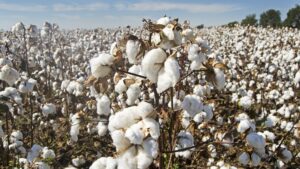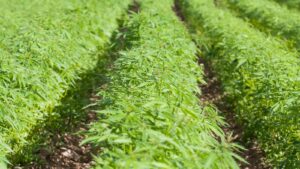What’s one thing you should know about NAPB Scholar Samantha Wegener? Not only is she a first-generation college student, but she’s also a first-generation immigrant — her mother moved to the U.S. approximately 30 years ago from Germany.
Why is that important to her? Well, both aspects give her a unique perspective on the world and have allowed her to continuously keep an open mind to new opportunities and experiences.
Currently an undergraduate student at the University of Georgia, Tifton, Wegener is majoring in agriscience and environmental systems with an emphasis on plant breeding, genetics and genomics. She shares a little more about herself.
Seed World (SW): Why did you decide to focus on cotton right now?
Samantha Jo Wegener (SJW): The reason I decided to start working in cotton, fiber quality improvement in particular, was because of its potential as a sustainable and environmentally friendly source for fiber. Synthetic fibers are made from nonrenewable, non-ecofriendly resources like petroleum. Currently around 60% of the fiber market are synthetic, manmade fibers and this is forecasted to increase. Cotton only makes up approximately 25% of the fiber market. So, if we increase fiber quality then we can potentially increase the global demand for cotton over synthetic fibers in the coming years.
SW: What are you looking to do in the future?
SJW: I want to continue my work in plant genetics to make discoveries in plant breeding as well as contribute to improving agriculture biotechnology along the way. My path is pretty open for new opportunities, and I still have so much to learn, which I think is a very exciting prospect!
SW: Tell us about your research, and how do you think it’ll impact the future?
SJW: The primary project that I have been working on in Dr. Chee’s lab at the University of Georgia, Tifton Campus is on increasing fiber quality. Our lab has introgressed foreign quantitative trait loci (QTL) alleles from Gossypium barbadense into Gossypium hirsutum, upland cotton, by way of marker-aided selection. I am currently using a transcriptomic and functional genetic approach to identify the casual genes from the introgressed QTL that has shown positive effects on fiber length.
In over 40 years of scientific breeding there has only been about a 7.9% increase in fiber length, in our project we have seen a 4-10% increase in fiber length from the background parents. This can help cotton remain competitive with synthetic, manmade fibers that are not natural and renewable like cotton fibers. It has been exciting to be part of a project that has spanned a good portion of my lifetime and the use of introgression from sister taxa has the potential of making significant genetic gains in relatively few breeding cycles if deployed in cultivar development. This project has the potential to make a difference in the cotton industry as well as the research community.
SW: How did you catch a passion for genetics?
SJW: Honestly, it was a bit of shock for me when I first heard about some of the issues facing modern agriculture while obtaining my Associates in Science from the Technical College of the Lowcountry (TCL) in South Carolina. Most of my education had been conducted on the east coast, so plant sciences were always a subject brushed over to meet the required curriculum. So, after learning about the issues we are facing my interest was piqued, and I decided to figure out a way to make a difference in the agricultural community. TCL had a Biotechnology certificate program that I enrolled in to further explore my options. From there I was introduced to genetic engineering techniques as well as bioinformatics. The University of Georgia’s plant breeding, genetics and genomics program offered a great crossroad for all my interests and that is how I arrived in a roundabout way to where I am today.












